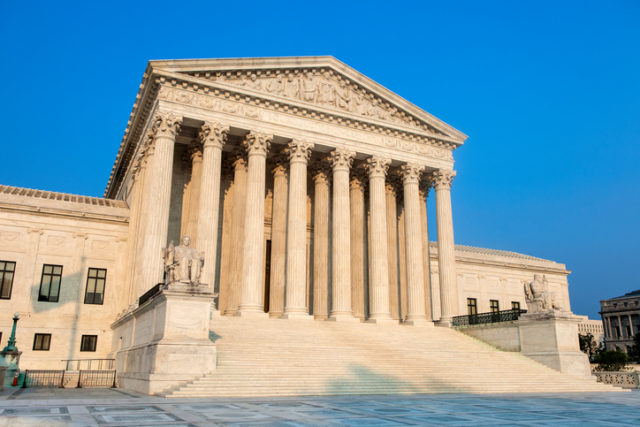
In a 7-2 opinion delivered Thursday, the Supreme Court tossed out a constitutional challenge to the Affordable Care Act, leaving the law intact.
Seven justices of the court, which now has a 6-3 conservative majority, concluded that the plaintiffs “failed to show that they have standing to attack as unconstitutional the Act’s minimum essential coverage provision.” This means the plaintiffs, including the state of Texas, were not able to prove that they had been harmed by the law.
The plaintiffs’ arguments stemmed from Congress’s decision in 2017 to reduce the penalty for not obtaining a minimum level of healthcare coverage — as mandated by the law — to $0. Texas, 17 other states and two individuals brought a lawsuit claiming that with a $0 penalty, the requirement is unconstitutional as it can no longer be considered a tax. They further argued that the requirement cannot be severed from the rest of the act, and hence, the act as a whole is invalid.
Though the long-awaited decision did not address the larger question of whether the minimum essential coverage requirement can be severed from the law, it effectively ends another major challenge to former President Barrack Obama’s signature legislation. This is the third time a challenge against the ACA brought to the Supreme Court has failed, with earlier attempts falling short in 2012 and 2015.
In this most recent attempt, the individual plaintiffs claimed that they experienced “a particularized individual harm” when required by law to pay for healthcare coverage.
But since the penalty for not doing so was effectively nullified four years ago, there is no way for the defendants, the commissioner of internal revenue and the secretary of health and human services, to enforce the requirement, Justice Stephen Breyer wrote in the majority opinion for the court.
“In a word, they have not shown that any kind of Government action or conduct has caused or will cause the injury they attribute to [the minimum essential coverage requirement],” Justice Breyer wrote.
Further, the state plaintiffs argued that the requirement would drive individuals to state-sponsored insurance programs, thereby increasing costs. But they did not provide sufficient evidence of any actual or potential increase in enrollment as a result of a mandate, said Leah Greenberg Katz, a partner at law firm Troutman Pepper, in an email.
“Absent that evidence, the states failed to demonstrate the requisite injury,” he said. “Although the holding did not address the constitutionality of the [individual] mandate, the court’s holding leaves it intact and very difficult to challenge in the future.”
The Supreme Court’s decision was met with applause from stakeholders across the industry.
“We are pleased with today’s decision dismissing the challenge to the Affordable Care Act,” said Kim Keck, president and CEO of Blue Cross Blue Shield Association, in an email. “[It] now gives the nation an opportunity to meaningfully tackle the underlying cost of healthcare — one of the most critical challenges in the healthcare system.”
Rick Pollack, president and CEO of the American Hospital Association, issued a statement with a similar sentiment, saying that the millions covered under the ACA “can again breathe a sigh of relief.”
Overall, this decision will bring stability to the health sector at a time when it has been upended by the Covid-19 pandemic, said Cynthia Cox, vice president at the Kaiser Family Foundation, in an email.
“The ACA has been controversial since its passage, but the court ruled unambiguously today across ideological lines,” she said.
Despite the controversy surrounding the law, public opinion of the ACA has evolved since its passage in 2010, according to a Kaiser Family Foundation tracking poll. In May 2010, about 44% of Americans had a generally favorable opinion of the law, while 41% had an unfavorable opinion. But as of May, the proportion of Americans who favorably view the ACA had jumped to 53%, while the proportion of those with an unfavorable view had dropped to 35%.
If the law had been repealed, not only would the healthcare coverage of about 31 million people be in jeopardy, but at least 50 million with preexisting health conditions would have become potentially uninsurable amid a pandemic that has so far claimed more than 600,000 lives.
Photo: traveler1116, Getty Images








